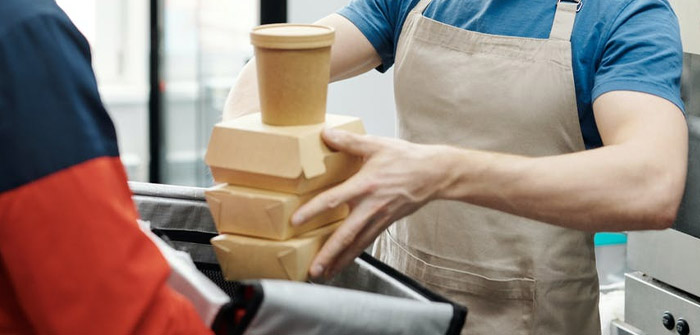(Photo | Pexels)
In the January 20, 2021 edition of pdx.eater.com, a Portland restaurant e-publication, it was reported that over 90 Portland-area restaurants had either temporarily or permanently closed due to the COVID-19 pandemic. Some of the city’s most famous eateries shut down like Pok Pok, Toro Bravo, Beast, Bluehour, Sanborn’s and too many more to mention here.
Closer to home, Bend’s restaurant scene could only be categorized as tenuous, at best, but the worst may still be ahead of our beloved eateries and bars if the virus does not afford our Governor to loosen regulations regarding in-house dining and imbibing.
At The Lemon Tree in downtown Bend, Chef/Owner Betsy McDonald attributed their ability to survive to several factors, not the least of which was the first round of the SBA Paycheck Protection Program (PPP) offered to businesses. “Without that assistance, we would definitely have been in the red for 2020,” McDonald said, “and just yesterday we applied for the second round that will get us through to summer, when hopefully we have the vaccine widely spread. We anticipate we may have the best summer ever in 2021 (if that happens).”
Utilizing the online ordering app, ChowNow, was also a boon for business. Chef Betsy stated, “They charge a flat fee, and they are so much faster in their delivery than DoorDash which is important since our food needs to stay fresh to the customer. Our takeout business is now 20-50 percent of our total sales through ChowNow.” Alcohol sales have increased noticeably at the restaurant as well, both when they had a record-breaking summer in 2020 when indoor dining was available, and now with the five outdoor tables that they serve. “During the summer, we used the European model of displaying a silver bucket outside with a bottle of Prosecco on ice. Customers could order a glass of wine while they waited for a table. Alcohol sales tripled on some days.”
The toll on their employees, however, has been evident. At the peak of the summer season in 2019, McDonald said they employed 21 staff and now they are down to five, four of them are part time with one full-time manager, along with the three owners. Most of the other employees have been able to get unemployment compensation, while some have been rotated in for shifts when needed. “We have had to be financially responsible to survive or we would not have been able to continue,” said McDonald.
Brian Dioguardi, owner of the three beloved Baldy’s Barbecue restaurants in Bend and Redmond, echoed Chef McDonald’s sentiments. “When the first round of PPP funds were released, we were wondering if we could use all the money allocated for payroll and other things in the eight-week allotted timeframe. But then they extended it to 24 weeks, and it really helped us out. This second round can be used for structures, heaters and other COVID-related things. However, for round two, business must be down at least 25 percent from the previous year’s quarter. In 2019, construction on Century Drive really hurt our westside store, so 2020 was actually not down enough to qualify (for PPP).”
“I consider ourselves lucky,” Dioguardi continued, “since we had a takeout program already, and we didn’t have to start from square one.” Like The Lemon Tree, Dioguardi points to alcohol sales as helping to save his business when indoor dining was allowed, citing the lower pour cost of liquor compared to food cost.
Now that takeout and outdoor dining are the only allowable options, Dioguardi invested in renting a 20- by 60-foot outdoor tent for the Redmond store on Sixth Street. “Sales tripled on most days after we had been shut down for indoor dining,” he said, “and although the tent rental is expensive, people are dining and drinking again, and it is nice to feel the energy. Our biggest problem now is convincing our employees to come back to work as the extra stimulus money has let people sit at home (rather than return to work).”
And unlike the Portland area, it appears that very few food or beverage establishments have shut their doors in Central Oregon. “I can only think of Baltazar’s,” said Dioguardi, “but the next 90 days, we’ll see.”
Rosie Westlund, co-owner of Wild Rose Northern Thai Eats in downtown Bend, helped develop their takeout system early in the pandemic since they were not able to offer outside dining. Their efficient method affords diners the ability to call ahead and pull up to one of several parking spots reserved specifically for the restaurant’s takeout procedure, where an employee comes to your car, verifies your phone number and brings the order to you, placing it through your car window. “Thai food in general is easy to package and reheat later,” Westlund said. “Our biggest difficulty (during the pandemic) is everyone wants to order and get their food at the same time. On busy weekends, we are sometimes booked by 6pm for pick up through 8pm. Our kitchen is small and we can only do a certain amount of volume. Lunches are very mellow, but people need to remember to call ahead for dinners.” Westlund added that they have seen around a 20 percent average growth annually since they opened in 2013. But this past year, sales have been flat due to the lack of being able to space out diners more for indoor seating. “We feel fortunate that we are doing as well as it can be.”
Westlund, the daughter of Paul and Ampawan Itti, co-owners of Wild Rose and from Chiang Mai Thailand, is also opening an exciting new eatery just a couple blocks west of Wild Rose in the new 69 Newport complex. Sen, which is Thai for noodle, hopes to open in late March according to Westlund. It will be a “Thai noodle house and hot pot (eatery) and will be very different than your standard Thai food.” Sen, envisioned prior to the COVID outbreak, was designed to have a 50:50 ratio of kitchen-to-dining area. “We got to choose the buildout,” said Westlund, “and with the Wild Rose kitchen being so small, we wanted a larger area to cook. People questioned our decision at the time, but now, it will be able to support more takeout than Wild Rose, especially if interior dining is still limited by the time we open.”
The Central Oregon restaurant industry is a major part of the local economy, supporting tourists and locals alike. We can all do our part to support them as best we can in this time of need, so they are still here when things get back to normal.
Howard Friedman is a retired chef and was the food writer for Bend Living magazine for many years. He is a partner and the managing principal broker at Compass Commercial Real Estate, served as Board President of the Bethlehem Inn homeless shelter from 2019-2020 and is vice-chairman on the MBSEF Board.






